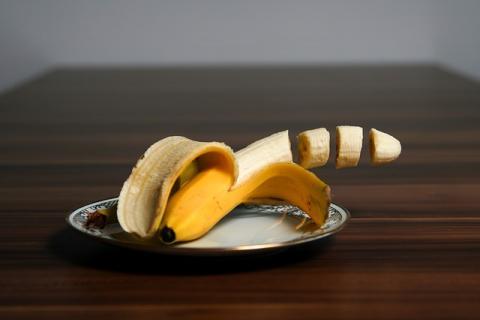
What do avocado, acorn squash, and wild salmon all have in common? They are examples of foods that contain the highest amounts of potassium, an essential nutrient used to maintain fluid and electrolyte balance. In this case, potassium helps to keep the body hydrated and collaborates with sodium to support cellular function. Not only is it an indispensable mineral, but because it is also an electrolyte, it has a double identity that comes with an abundance of potassium benefits when you eat enough on a regular basis. If, on the other hand, you do not consciously consume enough potassium in your regular diet, you make yourself vulnerable to symptoms associated with potassium deficiency, including renal issues and more.
When we get enough potassium through our diet, we take for granted the vital role it plays. The third most abundant mineral in the body, potassium is a required macromineral, a nutrient we need in larger quantities than others to help regulate the function of many vital organs such as the heart, kidneys, brain, and muscular tissue. It is only when we show signs of hypokalemia, a term used to describe a body low in potassium, that we take notice, and these are the signs you may expect.
Signs of Hypokalemia
1. Severe Headaches
2. Dehydration
3. Heart Palpitations
4. Swelling of Glands and Tissues
It is important to note that the recommended daily dietary intake is 4700 mg for both men and women.
This amount is easily obtained through a whole food diet that incorporates some, if not all, of these potassium-rich food items. Avocado, acorn squash, and wild salmon as stated before, but large amounts of potassium may also be obtained from eating spinach, sweet potatoes, dried apricots, pomegranates, white beans, beet greens, carrot juice, and bananas. If you crave a drink, reach for a nice refreshing coconut water to rehydrate the body.
Outside of the basic benefits that support our health and wellbeing, here is a short list of other advantages to keeping your body in line with the recommended daily intake.
Benefits of a Potassium-Rich Diet
- Don’t skip a beat. Boost your heart’s health. Potassium regulates the heart’s rhythm, making sure it is on pace and no hiccups cause it to fluctuate.
- A diet high in potassium decreases muscle cramps due to proper hydration.
- Don’t supplement. Potassium derived from whole foods has been reported to lower the risk of stroke. The body just doesn’t absorb the supplement as well as it utilizes good old-fashioned whole foods.
- A diet that is rich in fruits and vegetables helps to lower blood pressure, essentially alleviating or eliminating high blood pressure or hypertension.
- Stay hydrated and lower the unwelcome appearance of cellulite. One of the main factors that cause cellulite is fluid retention, caused when sodium and potassium are not well balanced. It is far too common today for individuals to consume sodium and overlook potassium. Where sodium does bring nutrients into your cells, it is potassium’s job to flush excess waste out.
- Process and utilize carbohydrates efficiently, helping to build protein stores and muscle.
While these are the advantages of consuming a diet high in potassium, there are many negative effects that can be caused by a diet deficient in potassium. Your body works hard to keep everything in check and a good balance between potassium and sodium levels, though it is not always easy. When sodium levels go up, potassium levels go down, and when sodium levels go down, potassium levels go up. Consuming too much dietary sodium has always been a red flag, knowing why can help to turn the table and steer you away from adding that extra dash of salt.
A diet high in sodium and deficient in potassium can lead to:
- Fatigue
- Constipation
- Irritability
- Muscle Cramps
- Weight Gain
- Blood Pressure Volatility
- Heart Problems
- Cellulite Buildup
- Nausea
- Arthritis
- Abdominal Cramping
- Bloating
- Depression
- Confusion
- Hallucinations
The list is not a cause for alarm, but it is important to be mindful of this essential nutrient that brings balance to many internal systems.
While bananas have always been noted as a good source of potassium, it is great to know that other delicious sources of potassium-rich foods are available that can be eaten alone or in healthy recipes, which makes it easy not to fall short in the potassium department.
Miller, Brian. 5 August 2015. 15 Foods That Are High In Potassium. Health. Retrieved from http://www.health.com/health/gallery/0,,20721159,00.html#how-to-get-more-potassium-0.
Top 10 Potassium-Rich Foods + Potassium Benefits. Dr. Axe Food is Medicine. Retrieved from https://draxe.com/top-10-potassium-rich-foods/.








